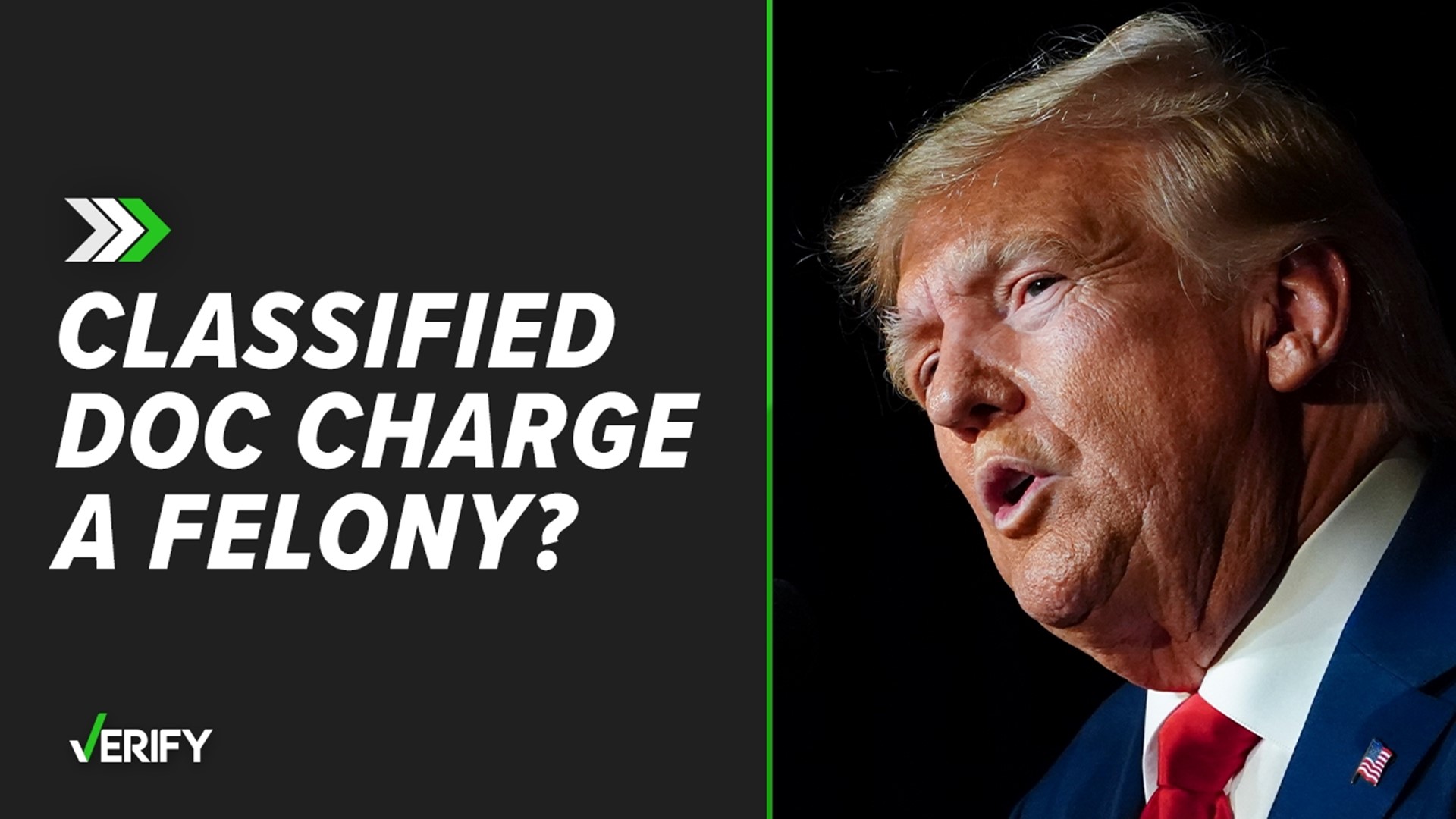Former President Donald Trump is facing 37 federal felony charges related to the mishandling of classified documents at his Mar-a-Lago estate in Florida.
Before Trump’s most recent indictment was unsealed, two viral tweets claimed that he signed a law that upgraded the penalty for mishandling classified documents, making the crime a felony instead of a misdemeanor.
Felony crimes are more serious than misdemeanors, carrying longer prison sentences and higher penalties.
THE QUESTION
Did Trump sign a law that made mishandling classified documents a felony instead of a misdemeanor?
THE SOURCES
- FISA Amendments Reauthorization Act of 2017
- U.S. Department of Justice
- Kel McClanahan, executive director of the National Security Counselors, a nonprofit public interest law firm
THE ANSWER
Yes, Trump signed a law that made mishandling classified documents a felony instead of a misdemeanor.
WHAT WE FOUND
Former President Donald Trump signed a law in January 2018 that increased the penalty for “unauthorized removal and retention of classified documents or material.”
Trump wasn’t charged with this specific crime in the indictment over his alleged mishandling of documents. However, the claim that he upgraded that penalty is true.
Before Trump signed the change into law, people found guilty of removing and retaining classified documents faced a maximum of one year in prison. Now, after Trump’s signature, the crime carries a penalty of up to five years in prison – making it a felony.
The U.S. Department of Justice defines a felony as “any offense punishable by death or imprisonment for more than one year.” Misdemeanors, on the other hand, carry sentences of one year or less.
The law that Trump signed is called FISA Amendments Reauthorization Act of 2017. It made sentencing changes to Section 1924 of U.S. Code, which makes it a crime for U.S. officers and employees to “knowingly remove” classified documents or material with the intent to retain them at an “unauthorized location.”
Trump is not facing charges under Section 1924 in the Mar-a-Lago classified documents investigation. He is charged with 31 counts of willful retention of national defense information under the Espionage Act.
The Espionage Act “deals only with ‘information related to the national defense,’ which does not have to be classified,” Kel McClanahan, executive director of the National Security Counselors, explained.
Though most of the documents in Trump’s case have classified markings, according to the indictment, that distinction isn’t relevant to charges brought under the Espionage Act. That means the act renders Trump’s unfounded claims about “standing declassification orders” irrelevant, McClanahan said.
Trump is facing other charges apart from those under the Espionage Act, including conspiracy to obstruct justice, corruptly concealing a document or record, concealing a document in a federal investigation, and making false statements.
The Associated Press contributed to this report.

